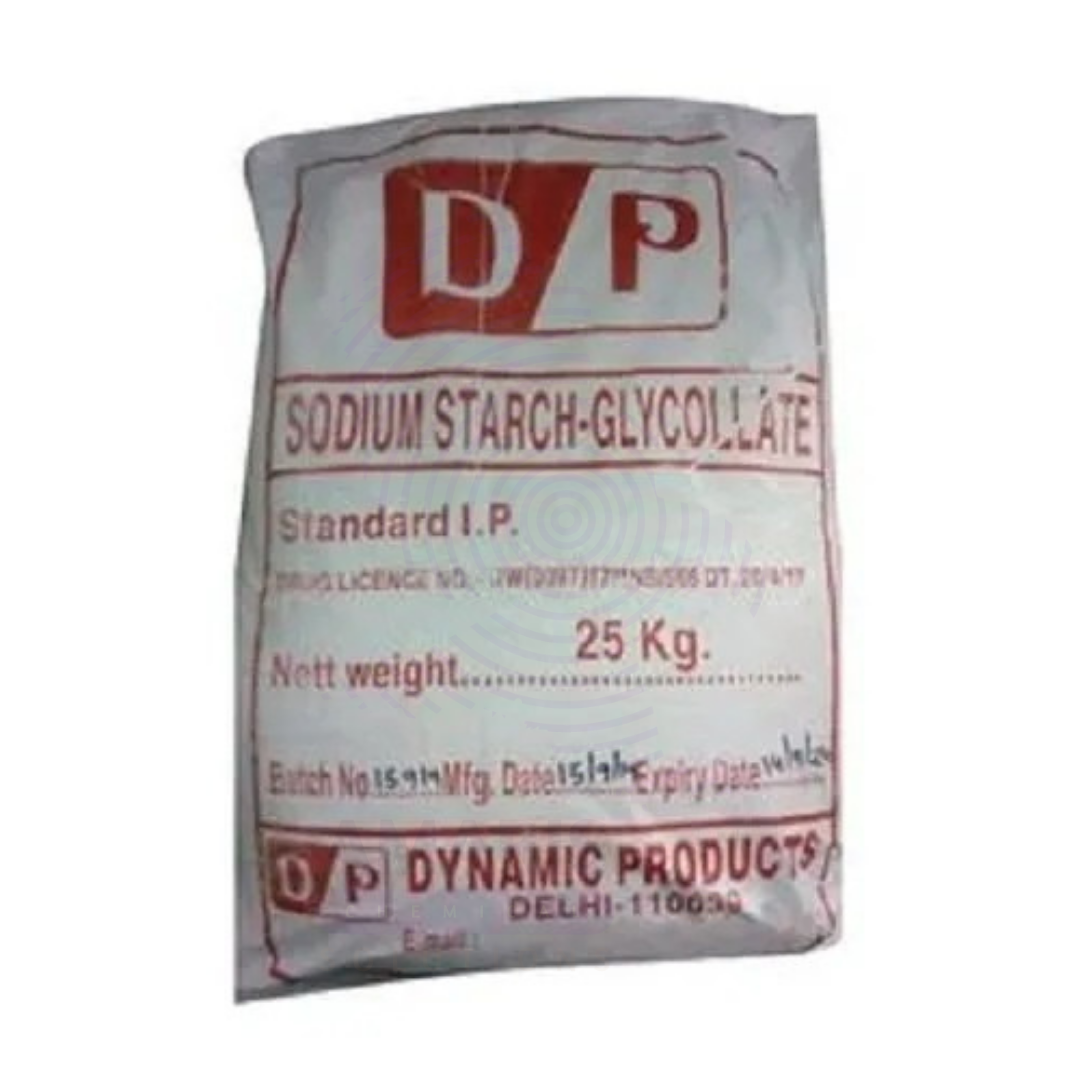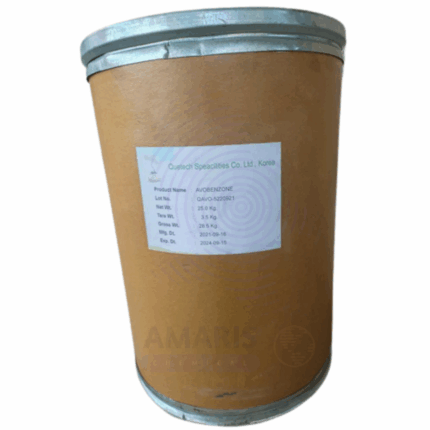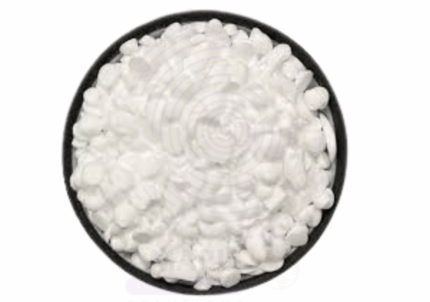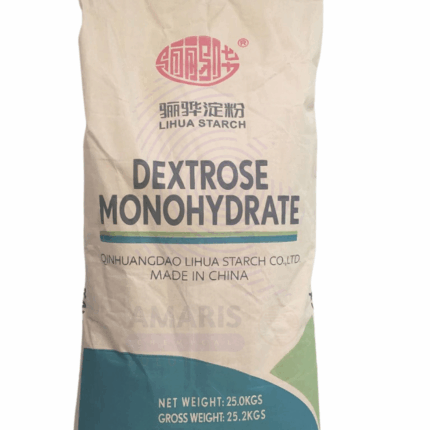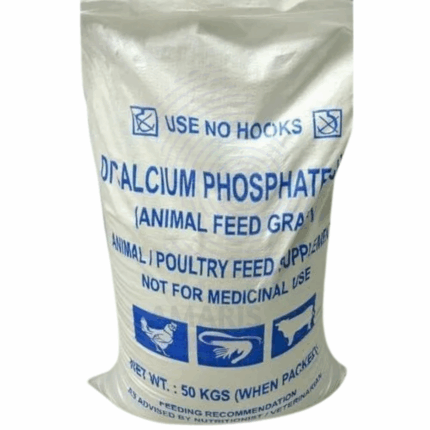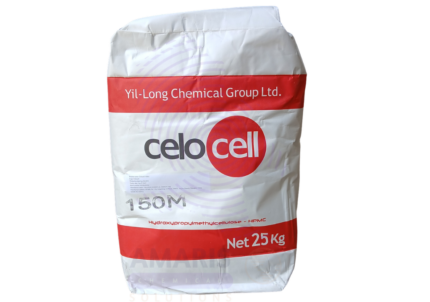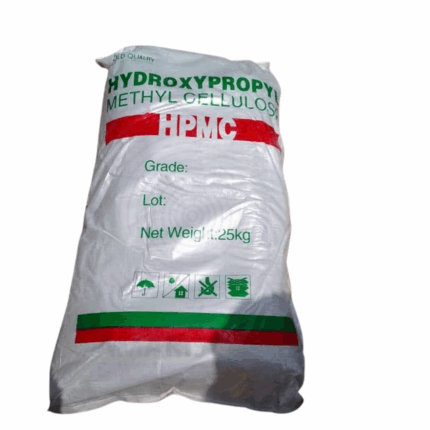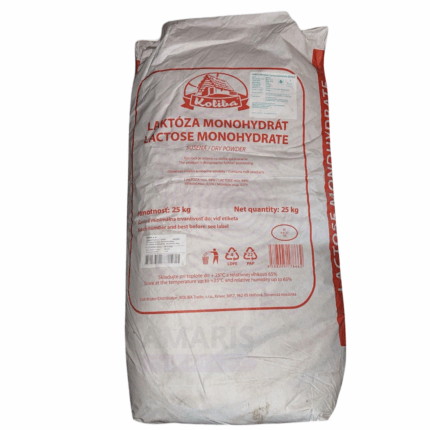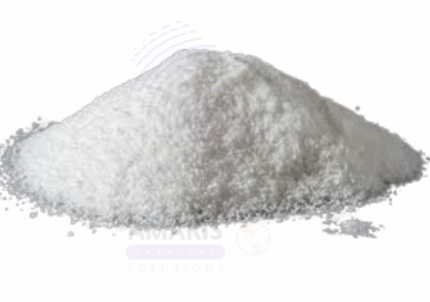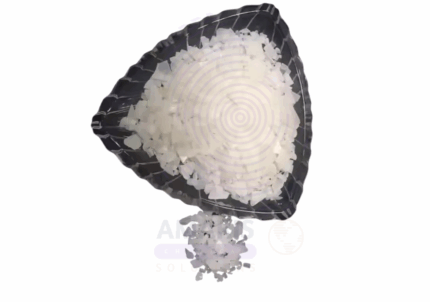
Electrode Copper Plate
$ 13.99 Original price was: $ 13.99.$ 13.78Current price is: $ 13.78.

Electrode Copper Rod
$ 13.99 Original price was: $ 13.99.$ 13.87Current price is: $ 13.87.
Sodium Starch Glycolate
Whatsapp Order
Sodium Starch Glycolate (SSG) is a white to off-white, odorless, tasteless powder derived from potato or maize starch and chemically modified with carboxymethylation and cross-linking. It has the chemical formula (C₆H₁₀O₅)nNa and is widely used in solid dosage pharmaceutical formulations as a superdisintegrant. This 25kg grade is supplied in high-purity pharmaceutical and food-grade quality, offering excellent swelling capacity and rapid disintegration properties even at low concentrations.
Description
Table of Contents
Toggle
Sodium Starch Glycolate
Primary Uses
- Pharmaceutical Industry
- Tablet Disintegrant: Promotes rapid breakup of tablets in the gastrointestinal tract for improved bioavailability.
- Capsule Disintegrant: Enhances dissolution of active ingredients in hard and soft gelatin capsules.
- Granule Disintegrant: Used in multi-particulate systems such as sachets or sprinkle formulations.
- Direct Compression Formulations: Enhances flowability and compressibility of powder blends.
- Modified Release Formulations: Used in fast-dissolving or orally disintegrating tablets (ODTs).
- Effervescent Tablets: Facilitates rapid dissolution along with effervescence.
- Nutraceutical Tablets: Widely used in dietary supplements, vitamins, and herbal tablets.
- Food Industry
- Food Additive: Used as a processing aid or disintegrant in chewable dietary supplements.
- Carrier for Flavors or Nutrients: Occasionally employed to aid dispersion of encapsulated flavors.
- Starch Replacement: In limited food-grade applications for specialty powder formulations.
- Cosmetic & Personal Care
- Powdered Cosmetic Products: Improves texture, spreadability, and moisture absorption in talc substitutes or facial powders.
- Topical Tablets or Patches: Disintegrates rapidly when exposed to moisture, aiding in rapid release of actives.
- Veterinary Medicine
- Animal Tablets and Boluses: Used in pet or livestock tablets to enhance disintegration in digestive tract.
- Nutritional Supplements for Animals: Aids in dispersion of vitamins and minerals.
Secondary Uses
- Industrial Applications
- Binder/Disintegrant in Specialty Chemicals: Occasionally used in powder-pressed catalysts or enzymatic tablets.
- Biodegradable Plastics Additive: Explored in biopolymer formulations for improving disintegration profile.
- Agricultural Products
- Seed Coatings (Experimental): Enhances moisture activation in germination-accelerating coatings.
- Pesticide Tablet Formulations: Used as a disintegrant in slow-release pesticide tablets.
- Research & Laboratory
- Drug Formulation Testing: Common excipient in pharmaceutical formulation development.
- In-vitro Dissolution Studies: Utilized in the design of model tablets for research applications.
KEY PRODUCT FEATURES
1. Basic Identification Attributes
- Chemical Name (IUPAC): Sodium salt of a carboxymethyl ether of starch
- Common/Trade Name: Sodium Starch Glycolate (SSG)
- CAS Number: 9005-25-8 (starch base), 9063-38-1 (SSG)
- HS Code: 3505.10.00
- Synonyms: Carboxymethyl starch sodium salt, Cross-linked carboxymethyl starch sodium
2. Physical & Chemical Properties
- Physical State: Free-flowing hygroscopic powder
- Color & Odor: White to off-white; odorless
- Solubility: Practically insoluble in water; swells extensively
- Moisture Content: ≤10%
- Particle Size: 90% < 100 µm (typical)
- pH (1% dispersion): 5.5–7.5
- Swelling Capacity: Can swell 20–30 times its weight in water
3. Safety & Hazard Attributes
- GHS Classification: Not classified as hazardous
- Toxicity: LD₅₀ (oral, rat) > 5000 mg/kg
- Exposure Limits: Not established; general dust exposure limits apply
- Allergen Status: Derived from non-gluten sources (e.g., potato or maize)
4. Storage & Handling Attributes
- Storage Conditions: Store in cool, dry, well-ventilated area; protect from moisture
- Container Type: 25kg fiber drums or multi-wall paper bags with polyethylene liner
- Shelf Life: 24–36 months in original sealed packaging
- Handling Precautions: Avoid dust generation; use in controlled environments
5. Regulatory & Compliance Attributes
- Pharmacopoeia Compliance:
- USP/NF, Ph.Eur, JP, IP compliant grades available
- Food Additive Status: Approved for food supplement use in several jurisdictions
- REACH Exempt (natural polymer)
- GRAS Status: Generally Recognized as Safe for intended uses
- Halal, Kosher, and Non-GMO Grades: Available from specific suppliers
6. Environmental & Health Impact
- Biodegradability: Fully biodegradable
- Ecotoxicity: Not harmful to aquatic or terrestrial life
- Bioaccumulation: Not expected
- Aquatic Impact: Negligible at typical use concentrations
SAFETY HANDLING PRECAUTIONS
Safety Handling Precautions
- PPE Required: Dust mask, gloves, safety goggles in bulk handling
- Handling Guidelines: Use dust control systems; avoid inhalation
- Storage Measures: Store in sealed packaging; avoid exposure to humidity
First Aid Measures
- Inhalation: Move to fresh air; seek medical help if symptoms persist
- Skin Contact: Wash with water; no known irritation
- Eye Contact: Rinse thoroughly with water; seek help if irritation occurs
- Ingestion: Non-toxic; rinse mouth and drink water if large amount is ingested
Firefighting Measures
- Fire Hazards: Combustible dust in large quantities
- Extinguishing Media: Water spray, dry chemical, foam
- Hazardous Combustion Products: Carbon oxides (CO, CO₂)
Related products
Avobenzone
Avobenzone (chemical name: Butyl Methoxydibenzoylmethane) is an oil-soluble organic compound widely used as a UVA filter in sunscreen formulations. It is valued for its ability to absorb a broad spectrum of ultraviolet A (UVA) rays (320–400 nm), protecting the skin from premature aging and damage caused by sun exposure. Avobenzone is often combined with other UV filters to provide broad-spectrum sun protection. It is a pale yellow liquid or crystalline powder, soluble in oils and alcohols but unstable in sunlight unless stabilized with other agents.
Cetyl Alcohol Flakes
Cetyl Alcohol Flakes is a high-purity fatty alcohol derived mainly from natural sources such as palm oil and coconut oil. Presented as white to off-white waxy flakes, this product contains at least 98% pure cetyl alcohol, ensuring consistent performance and quality. It is valued for its excellent emollient, thickening, and emulsifying properties and is widely used in personal care, pharmaceutical, and industrial formulations. The flake form facilitates easy handling, melting, and dosing in manufacturing processes. Cetyl Alcohol 98% Flakes contributes to the texture, stability, and moisturizing properties of various formulations, providing a non-greasy, smooth finish.
Dextrose Monohydrate
Dextrose Monohydrate is a crystalline form of glucose containing one molecule of water (monohydrate). It is a primary carbohydrate source widely used in pharmaceutical, food, and clinical nutrition applications. It provides readily available energy, serves as a sweetening agent, and acts as an osmotic agent in formulations. Dextrose Monohydrate meets pharmacopoeial standards (such as BP, USP) ensuring high purity, consistency, and safety for use in medical and food-grade products. Its solubility and stable crystalline form make it suitable for intravenous fluids, oral rehydration solutions, and food industry applications.
Dicalcium Phosphate
Dicalcium Phosphate (DCP) is an inorganic compound commonly used as a dietary supplement, food additive, and a key raw material in pharmaceuticals and animal nutrition. It appears as a white crystalline powder or granules and provides a highly bioavailable source of calcium and phosphorus, essential minerals for bone health, metabolic functions, and overall growth. DCP is widely used in the feed industry, pharmaceutical manufacturing, food processing, and various industrial applications, appreciated for its purity, stability, and nutritional value.
Hydroxypropyl Methylcellulose
Hydroxypropyl Methylcellulose HPMC, also known as hypromellose, is a semi-synthetic, non-ionic cellulose ether derived by chemically modifying cellulose through methylation and hydroxypropylation. It is a white to off-white, odorless, tasteless powder that dissolves in cold water to form clear, viscous solutions. HPMC is renowned for its thickening, film-forming, emulsifying, and controlled-release properties. It is widely used in pharmaceuticals, food, cosmetics, construction, and industrial applications due to its safety profile, versatility, and compatibility with various ingredients.
Lactose Monohydrate 200 Mesh
Lactose Monohydrate 200 Mesh is a fine, white, crystalline powder derived from milk sugar with a particle size of 200 mesh, indicating very fine granules. It is widely used in pharmaceutical, food, and confectionery industries as a filler, binder, and stabilizer. Lactose Monohydrate is valued for its excellent compressibility, low hygroscopicity, and compatibility with many active pharmaceutical ingredients (APIs). The monohydrate form contains one molecule of water, enhancing its stability and flow properties.
Methyl Cellulose 400mpc
Methyl Cellulose 400mpc is a chemically modified cellulose derivative in powder form. It is a non-ionic, water-soluble polymer widely used as a thickener, binder, emulsifier, and film former. It exhibits excellent water retention, viscosity control, and thermal gelation properties, making it ideal for applications in construction, pharmaceuticals, food, and cosmetics.
Polyethyl Glycol( PEG 6000)
Polyethyl Glycol( PEG 6000) is a high-molecular-weight polymer derived from ethylene oxide. It appears as a white, waxy solid or flake and is non-toxic, water-soluble, and chemically stable. PEG 6000 is widely used in pharmaceuticals, cosmetics, food processing, industrial formulations, and biotechnology, valued for its lubricating, solubilizing, binding, and moisturizing properties. It is odorless and tasteless, making it suitable for sensitive formulations.


 Preservatives(food)
Preservatives(food) Flavor Enhancers
Flavor Enhancers Acidulants
Acidulants Sweeteners
Sweeteners Antioxidants
Antioxidants Colorants(food)
Colorants(food) Nutraceutical Ingredients (food)
Nutraceutical Ingredients (food) Nutrient Supplements
Nutrient Supplements Emulsifiers
Emulsifiers
 Collectors
Collectors Dust Suppressants
Dust Suppressants Explosives and Blasting Agents
Explosives and Blasting Agents Flocculants and Coagulants
Flocculants and Coagulants Frothers
Frothers Leaching Agents
Leaching Agents pH Modifiers
pH Modifiers Precious Metal Extraction Agents
Precious Metal Extraction Agents
 Antioxidants(plastic)
Antioxidants(plastic) Colorants (Pigments, Dyes)
Colorants (Pigments, Dyes) Fillers and Reinforcements
Fillers and Reinforcements Flame Retardants
Flame Retardants Monomers
Monomers Plasticizers
Plasticizers Polymerization Initiators
Polymerization Initiators Stabilizers (UV, Heat)
Stabilizers (UV, Heat)
 Antifoaming Agents
Antifoaming Agents Chelating Agents
Chelating Agents Coagulants and Flocculants
Coagulants and Flocculants Corrosion Inhibitors
Corrosion Inhibitors Disinfectants and Biocides
Disinfectants and Biocides Oxidizing Agents
Oxidizing Agents pH Adjusters
pH Adjusters Scale Inhibitors( water)
Scale Inhibitors( water)
 Antioxidants(cosmetic)
Antioxidants(cosmetic) Emollients
Emollients Fragrances and Essential Oils
Fragrances and Essential Oils Humectants
Humectants Preservatives
Preservatives Surfactants(cosmetic)
Surfactants(cosmetic) Thickeners
Thickeners UV Filters
UV Filters
 Fertilizers
Fertilizers Soil Conditioners
Soil Conditioners Plant Growth Regulators
Plant Growth Regulators Animal Feed Additives
Animal Feed Additives Biostimulants
Biostimulants Pesticides (Herbicides, Insecticides, Fungicides)
Pesticides (Herbicides, Insecticides, Fungicides)
 Active Pharmaceutical Ingredients (APIs)
Active Pharmaceutical Ingredients (APIs) Excipients
Excipients Solvents(pharmaceutical)
Solvents(pharmaceutical) Antibiotics
Antibiotics Antiseptics and Disinfectants
Antiseptics and Disinfectants Vaccine Adjuvants
Vaccine Adjuvants Nutraceutical Ingredients (pharmaceutical)
Nutraceutical Ingredients (pharmaceutical) Analgesics & Antipyretics
Analgesics & Antipyretics
 Analytical Reagents
Analytical Reagents Solvents(lab)
Solvents(lab) Chromatography Chemicals
Chromatography Chemicals Spectroscopy Reagents
Spectroscopy Reagents microbiology-and-cell-culture-reagents
microbiology-and-cell-culture-reagents Molecular Biology Reagents
Molecular Biology Reagents Biochemical Reagents
Biochemical Reagents Inorganic and Organic Standards
Inorganic and Organic Standards Laboratory Safety Chemicals
Laboratory Safety Chemicals Specialty Laboratory Chemicals(Special Laboratory Equipment)
Specialty Laboratory Chemicals(Special Laboratory Equipment)
 Demulsifiers
Demulsifiers Hydraulic Fracturing Fluids
Hydraulic Fracturing Fluids Scale Inhibitors(oil)
Scale Inhibitors(oil) Surfactants(oil)
Surfactants(oil) Drilling Fluids
Drilling Fluids
 Dyes and Pigments
Dyes and Pigments Bleaching Agents
Bleaching Agents Softening Agents
Softening Agents Finishing Agents
Finishing Agents Antistatic Agents
Antistatic Agents
 Admixtures
Admixtures Waterproofing Agents
Waterproofing Agents Sealants and Adhesives
Sealants and Adhesives Curing Compounds
Curing Compounds Concrete Repair Chemicals
Concrete Repair Chemicals Anti-Corrosion Coatings
Anti-Corrosion Coatings
 Surfactants(cleaning)
Surfactants(cleaning) Builders
Builders Enzymes
Enzymes Solvents (Cleaning)
Solvents (Cleaning) Fragrances
Fragrances
 Electronic Chemicals
Electronic Chemicals Catalysts
Catalysts Lubricants
Lubricants Photographic Chemicals
Photographic Chemicals Refrigerants
Refrigerants Automotive chemicals
Automotive chemicals Pyrotechnic Chemicals
Pyrotechnic Chemicals
 Biodegradable Surfactants
Biodegradable Surfactants Bio-based Solvents
Bio-based Solvents Renewable Polymers
Renewable Polymers Carbon Capture Chemicals
Carbon Capture Chemicals Wastewater Treatment Chemicals
Wastewater Treatment Chemicals
 Pigments
Pigments Solvents(paint)
Solvents(paint) Specialty Coatings
Specialty Coatings Binders/Resins
Binders/Resins Additives
Additives Driers
Driers Anti-Corrosion Agents
Anti-Corrosion Agents Functional Coatings
Functional Coatings Application-Specific Coatings
Application-Specific Coatings
 Leavening Agents
Leavening Agents Dough Conditioners
Dough Conditioners Flour Treatments
Flour Treatments Fat Replacers
Fat Replacers Decoratives
Decoratives Preservatives(baking)
Preservatives(baking)
 Plasticizers & Softeners
Plasticizers & Softeners Reinforcing Agents
Reinforcing Agents Adhesion Promoters
Adhesion Promoters Vulcanizing Agents
Vulcanizing Agents Antidegradants
Antidegradants Blowing Agents
Blowing Agents Fillers & Extenders
Fillers & Extenders Accelerators & Retarders
Accelerators & Retarders